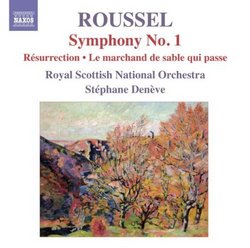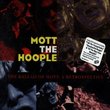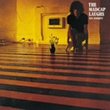| All Artists: Royal Scottish National Orchestra Title: Roussel: Symphony No. 1; Résurrection; Members Wishing: 0 Total Copies: 0 Label: Naxos Original Release Date: 1/1/2009 Re-Release Date: 11/17/2009 Genre: Classical Style: Symphonies Number of Discs: 1 SwapaCD Credits: 1 UPCs: 747313032372, 747313032372 |
Search - Royal Scottish National Orchestra :: Roussel: Symphony No. 1; Résurrection;
 | Royal Scottish National Orchestra Roussel: Symphony No. 1; Résurrection; Genre: Classical |
Larger Image |
CD DetailsSimilar CDs
|
CD ReviewsRoussel Triumphant--Freshly minted and deeply evocative Gregory M. Walz | Salt Lake City, Utah United States | 11/27/2009 (5 out of 5 stars) "With Naxos, the Royal Scottish National Orchestra, and conductor Stephane Deneve's third disc of Albert Roussel's (1869-1937) orchestral music, we have another resounding winner. The sound, performances, and conducting are all superb. The sense of commitment, passion yet refinement, and atmosphere combined with precision is everywhere apparent.
With at least two more CDs of orchestral Roussel recorded and planned for release, this series looks set to become the most thoroughly recommendable set of Roussel's orchestral works. Hopefully Naxos and Deneve will continue with the music for chorus and orchestra, like Aeneas, Psalm 80, and Evocations, as well as with the piano concerto and cello concertino. Even his few operas, such as Padmavati, should not be out of the question, as Deneve conducts opera as well. Roussel was the most important French symphonic composer of the interwar years, and his orchestral works deserve far more exposure on concert programs than they have received, at least outside of the French-speaking parts of Europe. On recordings at least, Deneve and the Royal Scottish National Orchestra have become his preeminent exponents, not withstanding Christoph Eschenbach's recent releases of the four symphonies on the Ondine label. Andre Cluytens's recordings (from decades ago) of many of the orchestral works will always be worth listening to, as will Ernest Ansermet's pioneering ones. Jean Martinon (Sym. No. 2), Charles Munch (Sym. Nos. 3 and 4), and Pierre Dervaux (Sym. No. 2) are also part of the indispensable pantheon. Charles Dutoit's and Marek Janowski's more recent recordings of the four symphonies are more than serviceable. But I challenge anyone to argue that any of these studio or even other live unreleased radio recordings of orchestral Roussel are more thoroughly idiomatic and convincing than Stephane Deneve's with the Royal Scottish National Orchestra. Roussel's Symphony No. 1, subtitled 'Le poeme de la Foret' (Poem of the Forest), is not programmatic, but follows the sequence of the seasons. It starts with Foret d'hiver (The Forest in Winter), then follows with Renouveau (Renewal), Soir d'ete (Summer Evening), and Faunes et dryades (Fauns and Dryads). The symphony was written in 1904-1906 and performed complete in 1908. It is almost never found on orchestral programs in the United States. In the first two movements, urgency and pools of warmly brilliant stasis are combined to intoxicating effect. There is a sleek, warmly surging harmonic, lyric and rhythmic energy merged with a palpable sense of effervescent, atmospheric tension and release in instrumental balance and blend. Deneve and the orchestra's sense of detail, form, and structure are presented as a tight yet flexible whole. The third movement, Summer Evening, is a sensuously evocative pictorial of harmonies, precisely calibrated yet thoroughly spontaneous sounding, with superbly placed instrumental balances, and sleek yet rapturously blended textures and timbres. Fauns and Dryads, the fourth movement, is supple and infused with deeply invigorating lyricism, harmonies, and rhythms, all conveyed in a precise, playful, and jaunty style--just what the music needs to work its magic. And yes, this word--magic--is as apt for much of Roussel's music as anything more formal, such as a series of phases in his compositions, like the influence of Impressionism and then something later akin to Neo-Classicism. Resurrection is a symphonic prelude that invokes Tolstoy's novel of that name. A supple series of harmonies are seamlessly integrated with an evocatively timed sense of coloristic tension and release. Deneve and the orchestra convey a sharp sense of architecture with a slowly cresting wave of slightly cool warmth and sly passion. A sense of poised poignancy and darkly swirling mystery in perfect sync. This work was composed in 1903 and first performed in 1904. It was Roussel's first-performed orchestral work. The final work on the disc is exceedingly rare on recordings. To my knowledge only one with orchestral strings exists, released in 2000 on the Ades label and out of print. Le marchand de sable qui passe (The Sandman) was Roussel's first work for the theatre, and it was first performed in 1908. The incidental music included here was for the pantomime by the dramatist George Jean-Aubry. It was written for flute, clarinet, horn, harp and string quartet (some say string quintet-access to earlier published scores would be helpful), but orchestral strings can substitute for the strings, as on this disc. The music is warmly evocative of a somewhat innocent sensuality, like a supple, pointed brush, then a lush yet precise immersion in a painter's palette of velvet-tinged colors. Even though everything on the disc was recorded under studio conditions (no audience present), at all times the playing is involved and evokes a striking sense of belief in the music. The strings are recorded with an ideal combination of clarity, atmosphere, and presence. Winds, brass, and percussion emerge as fully integrated, yet convey their presence in all the right ways at all the right moments, soloistic and character-laden yet never in the least bit harsh and brazen. Entrancing, then stealthily enthralling and suffused with a limpid passion, the three works on this superb disc delight and slowly enrapture those who take a chance to listen to a master orchestrator convey his unique world of sound. Recommended to those with even the slightest sense of orchestral adventure. " |




